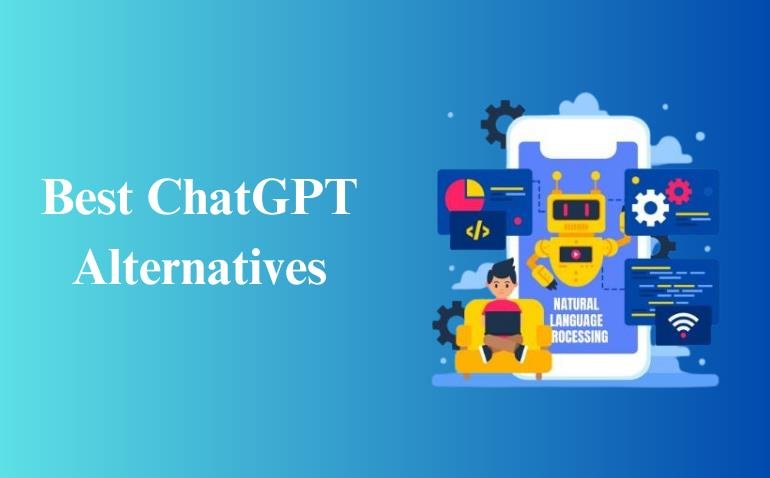Table of Contents
Best ChatGPT Alternatives in 2025: Top AI Tools You Should Try
Since OpenAI’s ChatGPT was launched in late 2022, it has transformed the way individuals, businesses, and organizations use AI for productivity, creativity, and problem-solving. Within just two months, ChatGPT crossed 100 million monthly active users, making it the fastest-growing consumer app in history (UBS, 2023).
But as powerful as ChatGPT is, it isn’t the only AI tool in town. The rapid evolution of generative AI has led to dozens of strong alternatives—each with unique strengths, pricing models, and use cases. Whether you want fewer restrictions, better pricing, specialized AI tools, or open-source freedom, there’s an option for you.
In this blog, we’ll explore the best ChatGPT alternatives in 2025, diving into their features, strengths, weaknesses, and pricing so you can choose the right one for your needs.
Why Look for ChatGPT Alternatives?
Before jumping into the list, let’s understand why people look for alternatives:
- Cost – ChatGPT Plus costs $20/month, which may not fit everyone’s budget.
- Restrictions – OpenAI has strong content moderation; some users want less restrictive AI tools.
- Features – Alternatives may offer built-in web browsing, PDF reading, coding tools, or integrations.
- Customization – Some tools allow users to fine-tune models for business-specific use cases.
- Privacy & Security – Enterprises may prefer tools with stronger data control or on-premise deployment.
Best ChatGPT Alternatives in 2025
1. Google Gemini (formerly Bard)
Google’s Gemini is one of the strongest ChatGPT alternatives, offering deep integration with Google Search, Gmail, Docs, and YouTube.
Key Features:
- Real-time web browsing with up-to-date results.
- Multimodal AI (text, images, and video understanding).
- Tight integration with Google Workspace.
- Free and premium versions (Gemini Advanced with Gemini 1.5 Pro).
Pros:
- Best for research due to access to live Google search.
- Strong coding abilities with context understanding.
- Free tier available.
Cons:
- Less creative writing capability compared to GPT-4.
- Still evolving in handling long, complex queries.
Pricing: Free (Gemini 1.0), or $20/month for Gemini Advanced.
2. Anthropic Claude 3
Anthropic’s Claude is known for its ethical AI design and large context window, making it excellent for research and long documents.
Key Features:
- Claude 3 Opus supports up to 200,000 tokens (roughly 150,000 words).
- Strong at summarization, analysis, and long-form content.
- Built with a safety-first approach.
Pros:
- Handles very long documents (contracts, books, research papers).
- Safer and more reliable outputs.
- Great for businesses needing compliance-focused AI.
Cons:
- Slightly slower than ChatGPT on complex queries.
- Limited image generation support.
Pricing: Free basic plan, or Claude Pro $20/month.
3. Microsoft Copilot (formerly Bing Chat)
Powered by OpenAI’s models but integrated into Microsoft tools, Copilot is ideal for productivity.
Key Features:
- Built into Edge, Windows 11, and Microsoft 365 apps (Word, Excel, Outlook).
- Access to GPT-4 for free (with some limits).
- Generates text, images (via DALL·E 3), and code.
Pros:
- Best for workplace productivity.
- Free GPT-4 access (limited).
- Perfect for enterprise integration.
Cons:
- Limited standalone customization.
- Works best within Microsoft ecosystem.
Pricing: Free (limited), or part of Microsoft 365 Copilot subscription starting at $30/user/month.
4. Perplexity AI
Often called the “AI-powered search engine,” Perplexity is perfect for fact-based queries.
Key Features:
- Real-time web search with citations.
- Mobile app and Chrome extension.
- Designed as an answer engine (similar to Google but with AI summaries).
Pros:
- Provides sources for every answer (great for research).
- Free access with optional pro plan.
- Clean, fast, and accurate.
Cons:
- Not as strong for creative writing.
- Focused more on factual queries than storytelling.
Pricing: Free, or $20/month Pro (uses GPT-4 Turbo).
5. Jasper AI
Key Features:
- Specialized templates for ads, blogs, emails, and product descriptions.
- Integrates with Grammarly, Surfer SEO, and other marketing tools.
- Built-in brand voice customization.
Pros:
- Perfect for businesses focused on content marketing.
- Collaboration features for teams.
- SEO and brand tone integration.
Cons:
- Expensive compared to ChatGPT.
- Less flexible for general Q&A.
Pricing: Plans start at $39/month per user.
6. Writesonic / ChatSonic
Writesonic offers AI writing tools, while ChatSonic acts as a ChatGPT alternative with internet browsing.
Key Features:
- Access to GPT-4 and custom AI personalities.
- Real-time web search.
- Supports image generation.
Pros:
- Great for marketers, bloggers, and social media managers.
- Affordable pricing tiers.
- Offers both writing and chatbot features.
Cons:
- Quality sometimes inconsistent compared to ChatGPT.
- Free plan has limitations.
Pricing: Free limited plan, paid plans start at $12/month.
7. Quora Poe
Quora’s Poe is a hub for multiple AI models in one place.
Key Features:
- Access to GPT-4, Claude, Gemini, and others in one app.
- Available on mobile and web.
- Great for experimenting with multiple models.
Pros:
- One subscription, multiple AIs.
- Easy-to-use mobile-first design.
- Offers free daily messages.
Cons:
- Daily limits without subscription.
- Not as customizable.
Pricing: Free with limits, or $19.99/month Poe Pro.
8. Hugging Face (Open Source Models)
For developers, Hugging Face provides open-source AI models like LLaMA, Falcon, and Mistral.
Key Features:
- Huge library of community-driven AI models.
- Customization for research and enterprise use.
- Free to experiment with hosted models.
Pros:
- Best for developers who want full control.
- No vendor lock-in.
- Supports privacy-first deployments.
Cons:
- Requires technical expertise.
- Not beginner-friendly.
Pricing: Free tier, enterprise pricing varies.
9. YouChat (by You.com)
An AI search assistant that combines search + chatbot functionality.
Key Features:
- AI search engine with citations.
- Chatbot answers with context.
- Available on desktop and mobile.
Pros:
- Free and easy to use.
- Focuses on factual accuracy.
- Alternative to Perplexity for search + AI.
Cons:
- Not as powerful for creative tasks.
- Ads may appear in search.
Pricing: Free with premium tier at $9.99/month.
10. Character AI
Focused on AI personas, Character AI allows users to chat with personalities ranging from historical figures to fictional characters.
Key Features:
- Create and customize AI characters.
- Roleplay, entertainment, and social interaction focus.
- Web and mobile apps available.
Pros:
- Fun and engaging for personal use.
- Great for roleplay or companionship.
- Free to use with optional subscription.
Cons:
- Not reliable for professional or factual tasks.
- Heavier moderation filters.
Pricing: Free, or $9.99/month c.ai+.
Conclusion
While ChatGPT remains the gold standard in AI chatbots, there are now dozens of strong competitors. If you need real-time research, tools like Perplexity or Google Gemini shine. For business content, Jasper and Writesonic excel. If you’re a developer, Hugging Face offers open-source freedom. And if you just want fun, Character AI is your go-to.
The best ChatGPT alternative depends on your goals—be it productivity, content creation, coding, research, or entertainment.
In 2025, the AI landscape is bigger than ever, giving users the power to choose tools that match their exact needs.


